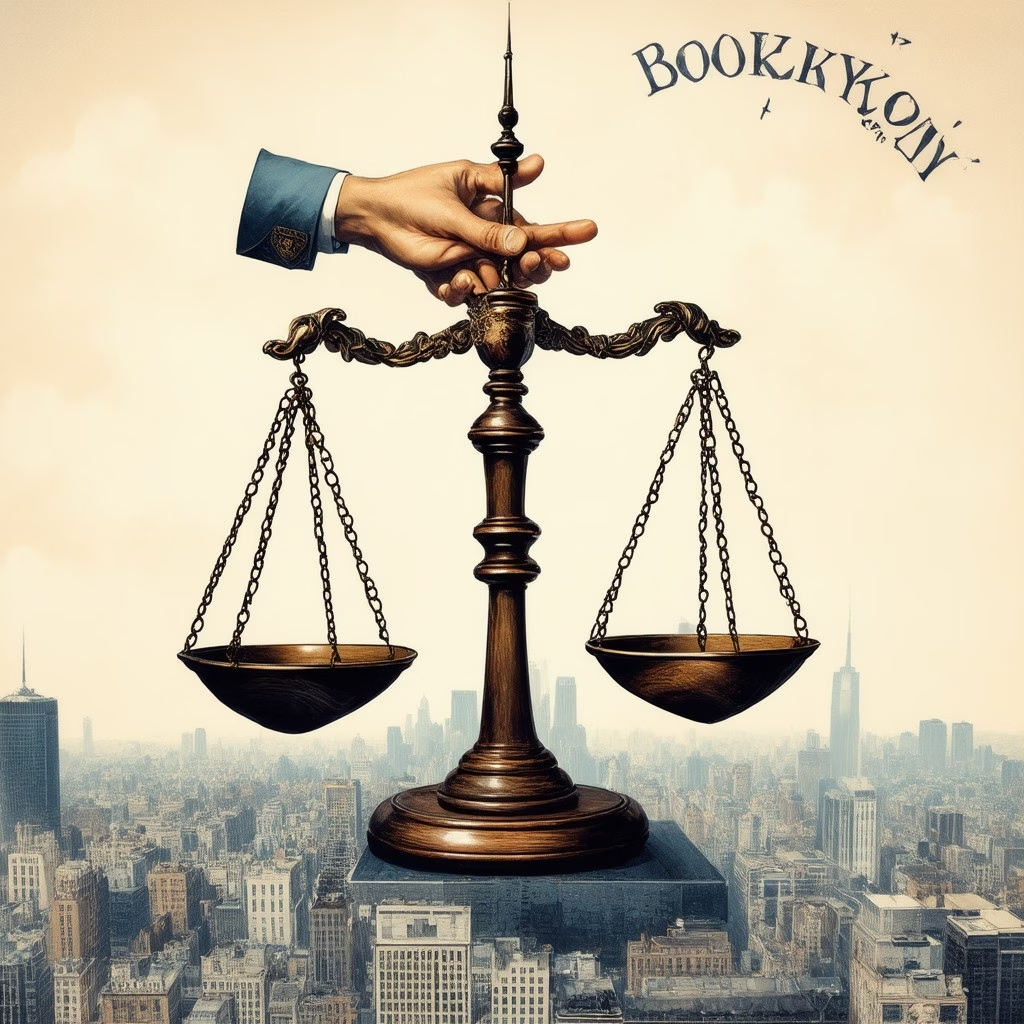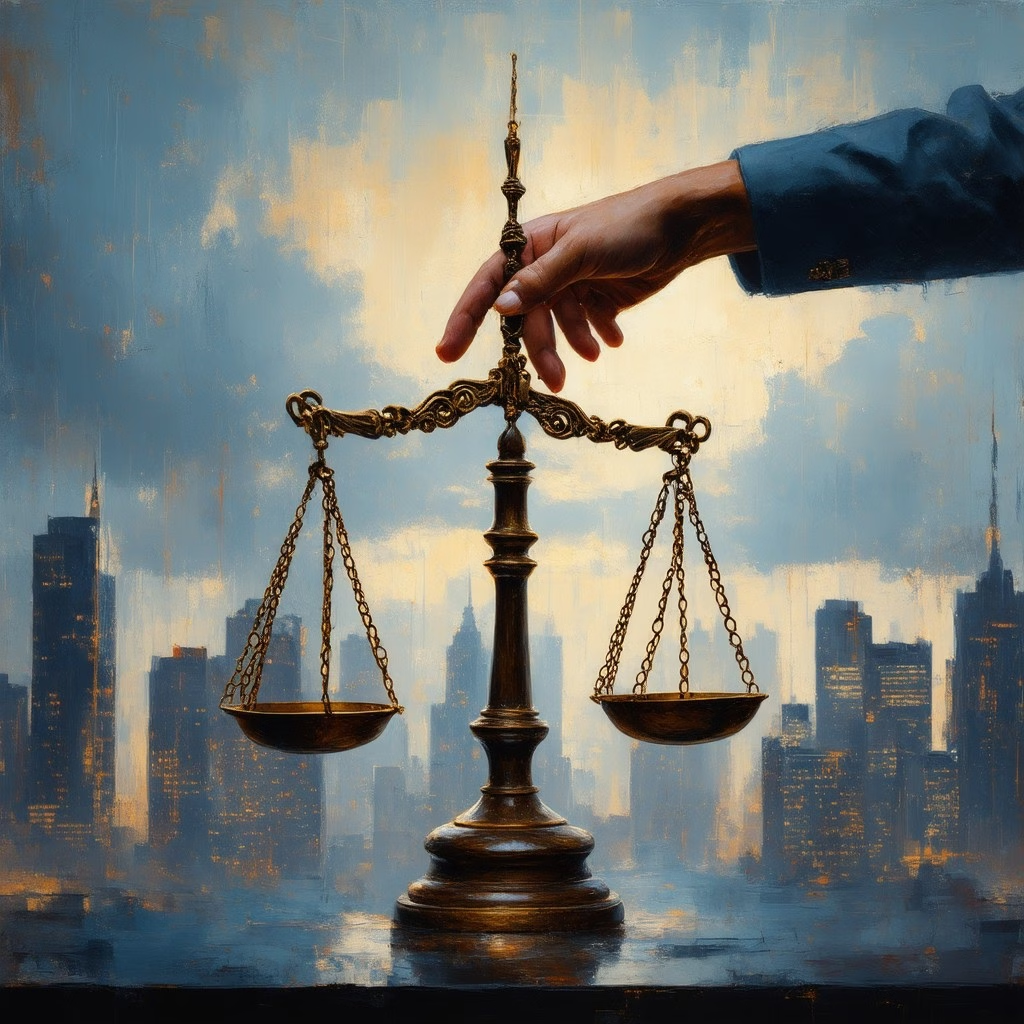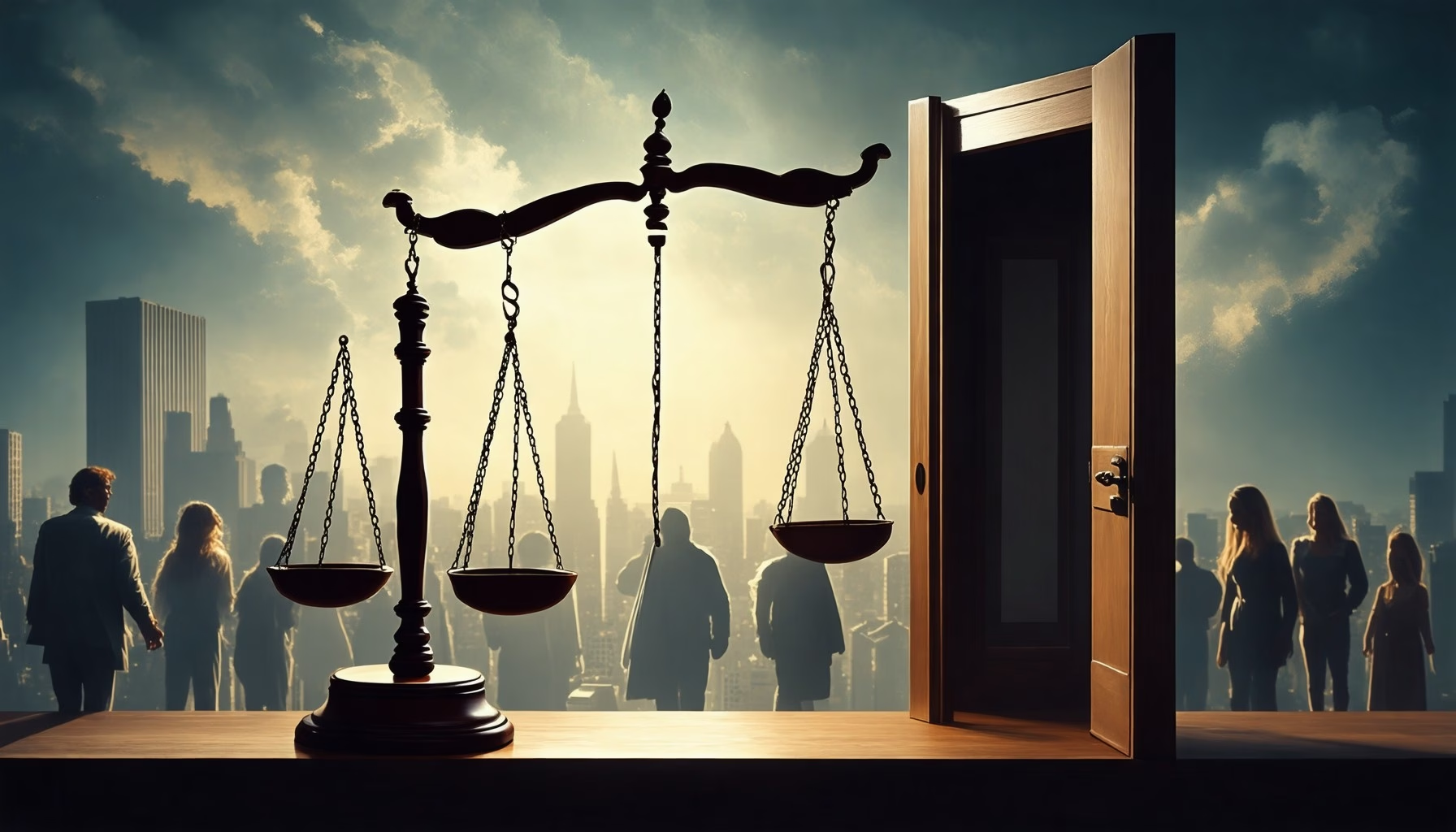Key Takeaways
- Legal aid criminal defense provides essential support for individuals unable to afford private legal representation, ensuring access to justice.
- Eligibility for legal aid often depends on income thresholds, typically set at 125% or 200% of federal poverty guidelines.
- Public defenders and legal aid organizations offer crucial legal services in criminal cases, improving the chances of favorable outcomes.
- Accessing legal aid can be done through local legal aid offices and online resources like the Legal Services Corporation.
- Understanding the differences between legal aid and private lawyers is vital for individuals seeking legal assistance in criminal matters.
In today’s complex legal landscape, understanding legal aid criminal defense is crucial for individuals facing criminal charges but lacking the financial resources to hire a private attorney. This article aims to provide essential insights into the world of legal aid, exploring key topics such as whether legal aid handles criminal cases, the options available for those who cannot afford a lawyer, and the eligibility criteria for accessing these vital services. We will delve into the costs associated with hiring a legal aid criminal defense attorney, compare free criminal lawyers with private options, and clarify the distinctions between legal aid and private legal representation. Additionally, we will guide you on how to find legal aid near you, ensuring you have the resources necessary to navigate your legal challenges effectively. Join us as we unpack these critical aspects of legal aid for criminal defense and empower you with the knowledge to make informed decisions in your time of need.
Does legal aid handle criminal cases?
Yes, legal aid does handle criminal cases. Legal aid organizations provide essential support to individuals facing criminal charges who cannot afford private legal representation. These organizations are dedicated to ensuring that everyone has access to justice, regardless of their financial situation.
Understanding Legal Aid for Criminal Defense
Legal aid services typically include representation in various criminal matters, such as misdemeanors, felonies, and appeals. They may also assist with related issues like bail hearings and probation violations. Access to legal aid is crucial, as studies show that individuals represented by attorneys are more likely to achieve favorable outcomes in their cases. According to the American Bar Association, legal representation can significantly impact the justice process, ensuring fair treatment under the law.
The Role of Legal Aid Criminal Lawyers in Brooklyn
In Brooklyn, legal aid criminal lawyers play a vital role in defending the rights of individuals facing criminal charges. These attorneys are well-versed in legal aid criminal defense and are committed to providing quality representation to those who qualify. They navigate the complexities of the legal system, ensuring that clients receive the support they need during their legal battles.
To qualify for legal aid, individuals usually must meet specific income guidelines, which vary by state. Many legal aid organizations also consider the nature of the case and the potential consequences for the individual. For more information on finding legal aid in your area, you can visit the Legal Services Corporation website or contact your local public defender’s office.

What is it called when you can’t afford a lawyer?
Exploring Legal Aid Options for Those in Need
When someone cannot afford a lawyer, several terms and options come into play. The term indigent describes individuals who are financially unable to pay for legal representation. This designation is often used in court settings to determine eligibility for assistance. More generally, the phrase unable to afford a lawyer applies to anyone lacking the financial resources necessary to hire legal counsel, regardless of their specific circumstances.
In criminal cases, defendants who cannot afford a lawyer are typically represented by a public defender. These attorneys are appointed by the court and funded by taxpayer dollars, ensuring that everyone has access to legal representation, as mandated by the Sixth Amendment of the U.S. Constitution. Additionally, legal aid organizations offer free or low-cost legal services to individuals who meet specific income criteria. These organizations often focus on civil matters, such as housing, family law, and immigration issues. According to the Legal Services Corporation, millions of Americans qualify for legal aid but do not seek help.
Another option is pro bono services, where some attorneys provide their services without charge. This practice is encouraged by many bar associations and serves as a way for lawyers to give back to the community, ensuring that low-income individuals receive necessary legal assistance. For more information on legal resources, you can visit the Legal Services Corporation website or consult local legal aid offices.
Free Criminal Lawyers: How to Access Legal Support
Accessing a free criminal lawyer can be crucial for individuals facing legal challenges without the means to pay for representation. Legal aid criminal defense services are available in many areas, including legal aid criminal defense Brooklyn, where organizations provide support to those in need. To find a legal aid criminal lawyer, individuals can start by contacting local legal aid offices or visiting their websites for information on eligibility and application processes.
Many legal aid organizations also offer resources to help navigate the complexities of the legal system. For instance, you can explore options for free lawyers criminal defense through community legal clinics or nonprofit organizations dedicated to providing legal assistance. These resources are designed to empower individuals by ensuring they have access to the legal support necessary to defend their rights effectively.
For further guidance on how to get a legal aid lawyer, check out our comprehensive guide on legal aid lawyer guide.
What is the Maximum Income to Qualify for Legal Aid?
Understanding the maximum income limits for legal aid is crucial for those seeking legal aid criminal defense. The eligibility criteria can vary significantly based on federal poverty guidelines and the specific Legal Aid organization. Here are the key thresholds:
- 125% of Federal Poverty Guidelines: This is the most common income threshold used by Legal Aid organizations funded by the Legal Services Corporation (LSC). For example, in 2023, this translates to an annual income of approximately $16,100 for an individual and $33,125 for a family of four.
- 200% of Federal Poverty Guidelines: Some Legal Aid organizations may have more flexible income rules, allowing individuals and families with incomes up to 200% of the federal poverty level to qualify for assistance. This equates to about $25,520 for an individual and $53,000 for a family of four in 2023.
- Variable Income Limits: The specific income limits can vary depending on the particular Legal Aid organization and the type of case. Some organizations may consider additional factors such as household size, expenses, and the nature of the legal issue.
For the most accurate and updated information, individuals should consult the Legal Services Corporation website or their local Legal Aid office. Additionally, resources like Gov Guider can provide guidance on eligibility and available services.
Income Limits and Legal Aid Society Directory
When exploring legal aid for criminal defense, it’s essential to know where to find the right resources. The Legal Aid Society Directory is a valuable tool for individuals seeking assistance. This directory lists various legal aid organizations across the country, detailing their specific income limits and services offered.
Each organization may have different criteria based on the type of legal aid they provide, including criminal legal aid and civil matters. By consulting the directory, individuals can identify which organizations they may qualify for based on their income and legal needs.
For more information on accessing legal aid, consider visiting the American Bar Association or the FindLaw Legal Information for comprehensive resources and support.
What is a Legal Defense Against Criminal Responsibility?
Legal defenses against criminal responsibility are essential tools in the criminal justice system, allowing defendants to argue that they should not be held legally accountable for their actions. The four primary legal defenses include:
- Insanity Defense: This defense asserts that the defendant was unable to understand the nature of their actions or distinguish right from wrong due to a severe mental illness at the time of the crime. The legal standard for this defense varies by jurisdiction, with the M’Naghten Rule being one of the most widely used, which requires proof of a severe mental disorder affecting the defendant’s cognitive abilities (American Psychological Association, 2020).
- Self-Defense: A defendant may claim self-defense if they can demonstrate that they used reasonable force to protect themselves from imminent harm. This defense is grounded in the belief that individuals have the right to defend themselves against threats, but the force used must be proportional to the threat faced (National Institute of Justice, 2019).
- Necessity or Duress: This defense applies when a defendant argues that they committed a crime to prevent a greater harm. For example, if someone steals food to feed a starving child, they may claim necessity. Duress, on the other hand, involves committing a crime under threat of immediate harm or death, which can absolve the defendant of responsibility if they acted under coercion (Legal Information Institute, Cornell Law School).
- Mistake of Fact: This defense is applicable when a defendant has a false belief about a fact that negates the intent required to commit a crime. For instance, if someone takes another person’s property believing it to be theirs, this misunderstanding can serve as a defense against theft charges (American Bar Association, 2021).
Understanding these defenses is crucial for both defendants and legal practitioners, as they can significantly impact the outcome of criminal cases. Criminal defense attorneys are skilled in employing these strategies to safeguard their clients’ rights and ensure a fair trial. For further information on legal defenses and their applications, resources such as Gov Guider can provide valuable insights into navigating the complexities of criminal law.
The Importance of a Criminal Legal Aid Lawyer
Having a skilled criminal legal aid lawyer is vital for individuals facing criminal charges, especially for those who cannot afford private representation. Legal aid criminal lawyers provide essential support by ensuring that defendants understand their rights and the legal processes involved in their cases. They are trained to navigate the complexities of criminal law and can offer tailored legal advice that aligns with the specific circumstances of each case.
Moreover, legal aid for criminal defense plays a crucial role in promoting fairness within the justice system. By providing access to competent legal representation, these lawyers help mitigate the risks of wrongful convictions and ensure that all individuals, regardless of their financial situation, receive a fair trial. For those seeking assistance, exploring options for free criminal lawyers or legal aid criminal defense services can be a critical step in securing the necessary support.

How Much Does a Legal Aid Lawyer Cost?
Understanding the costs associated with legal aid for criminal defense is crucial for individuals seeking assistance. Legal aid lawyers typically provide their services at no cost or a significantly reduced fee for individuals who meet specific income eligibility criteria. Here’s a detailed breakdown of the costs and services associated with legal aid:
- Cost Structure:
- Free Services: Most legal aid organizations operate on a not-for-profit basis, offering free legal assistance to low-income individuals. This includes representation in various legal matters such as family law, housing disputes, and immigration issues.
- Sliding Scale Fees: Some legal aid offices may implement a sliding scale fee structure based on the client’s income. This means that individuals with slightly higher incomes may still receive legal assistance at a reduced rate.
- Eligibility Criteria:
Legal aid services are generally available to individuals whose income falls below a certain threshold, which varies by state and organization. For example, many legal aid offices serve clients whose income is at or below 125% of the federal poverty level.
- Types of Services Offered:
Legal aid offices provide a range of services, including but not limited to:
- Legal representation in court
- Legal advice and consultations
- Assistance with paperwork and legal documentation
- Self-help resources and workshops
- Finding Legal Aid:
To locate a legal aid office, individuals can visit websites like Legal Services Corporation, which connects users with local legal aid resources based on their state and specific legal needs.
- Additional Resources:
Some states offer online platforms, such as Gov Guider, which can help individuals navigate legal issues and find appropriate legal resources.
Comparing Free Lawyers Criminal Defense Options
When considering legal aid for criminal defense, it’s essential to compare various options available for free legal representation. Here are some key points to consider:
- Types of Free Legal Services:
Many organizations provide free criminal lawyers who specialize in different areas of law. It’s important to identify the specific type of legal aid criminal defense you need, whether it’s for misdemeanors, felonies, or other criminal matters.
- Accessing Legal Aid Criminal Lawyers:
Individuals can access legal aid criminal lawyers through local legal aid offices, public defender’s offices, or nonprofit organizations dedicated to providing legal assistance. Resources like how to get a legal aid lawyer can guide you through the process of finding the right legal support.
- Community Resources:
Community organizations often partner with legal aid services to offer workshops and clinics where individuals can receive free legal advice and consultations. Engaging with these resources can help you better understand your rights and options.
Is Legal Aid the Same as a Lawyer?
Legal aid and a lawyer are not the same, although they are closely related concepts in the legal system. Legal aid refers to free or low-cost legal assistance provided to individuals who cannot afford to hire a private attorney. This assistance is typically available for civil matters, such as housing disputes, family law issues, and immigration cases. According to the Legal Services Corporation (LSC), legal aid organizations aim to ensure that low-income individuals have access to justice and legal representation.
Distinguishing Between Legal Aid and Private Lawyers
While both legal aid and private lawyers provide legal services, there are key differences between them:
- Cost: Legal aid services are often free or offered at a reduced cost based on income, while private lawyers typically charge hourly rates or flat fees.
- Scope of Services: Legal aid organizations focus on specific areas of law, often prioritizing cases that affect low-income individuals, such as criminal defense, housing, and family law. Private lawyers may offer a broader range of services.
- Funding: Legal aid is funded through government grants, donations, and nonprofit organizations, whereas private lawyers operate as independent businesses.
Understanding these distinctions is crucial for individuals seeking legal assistance, particularly in criminal cases where legal aid criminal defense can provide essential support.
The Mission of the Legal Aid Society and Its Impact
The Legal Aid Society plays a vital role in providing legal assistance to those in need. Its mission is to ensure that everyone, regardless of their financial situation, has access to quality legal representation. This is particularly important in criminal cases, where the stakes can be incredibly high. The society offers services through:
- Direct Representation: Legal aid criminal lawyers represent clients in court, ensuring their rights are protected.
- Legal Advice: They provide guidance on navigating the legal system, helping individuals understand their options.
- Community Outreach: The Legal Aid Society engages in outreach programs to educate the public about their rights and available resources.
By focusing on these areas, the Legal Aid Society significantly impacts the lives of many individuals facing legal challenges, particularly in urban areas like Brooklyn, where access to legal aid criminal defense is essential for ensuring justice.
Finding Legal Aid Near Me
Accessing legal aid for criminal defense can be crucial for individuals facing legal challenges without the financial means to hire a private attorney. Fortunately, there are several resources available to help you find legal aid criminal lawyers in your area. This section will guide you through the process of locating legal aid services that can provide the necessary support for your criminal case.
Utilizing the Legal Aid Society Portal for Assistance
The Legal Services Corporation offers a comprehensive portal that connects individuals with local legal aid organizations. By entering your location, you can find legal aid criminal defense services tailored to your needs. The portal provides information on various legal aid programs, including those specifically focused on criminal defense. Additionally, many state and local legal aid offices have their own websites where you can access resources, apply for assistance, and learn about eligibility requirements.
Legal Aid Society Manhattan Criminal Defense Practice Office
If you are in Manhattan, the Legal Aid Society has a dedicated office for criminal defense. This office provides free legal representation to individuals who qualify based on income and case type. They specialize in various areas of criminal law, ensuring that clients receive expert legal advice and representation. To learn more about their services, you can visit their website or contact them directly for assistance. This resource is invaluable for those seeking a criminal legal aid lawyer in New York City.




